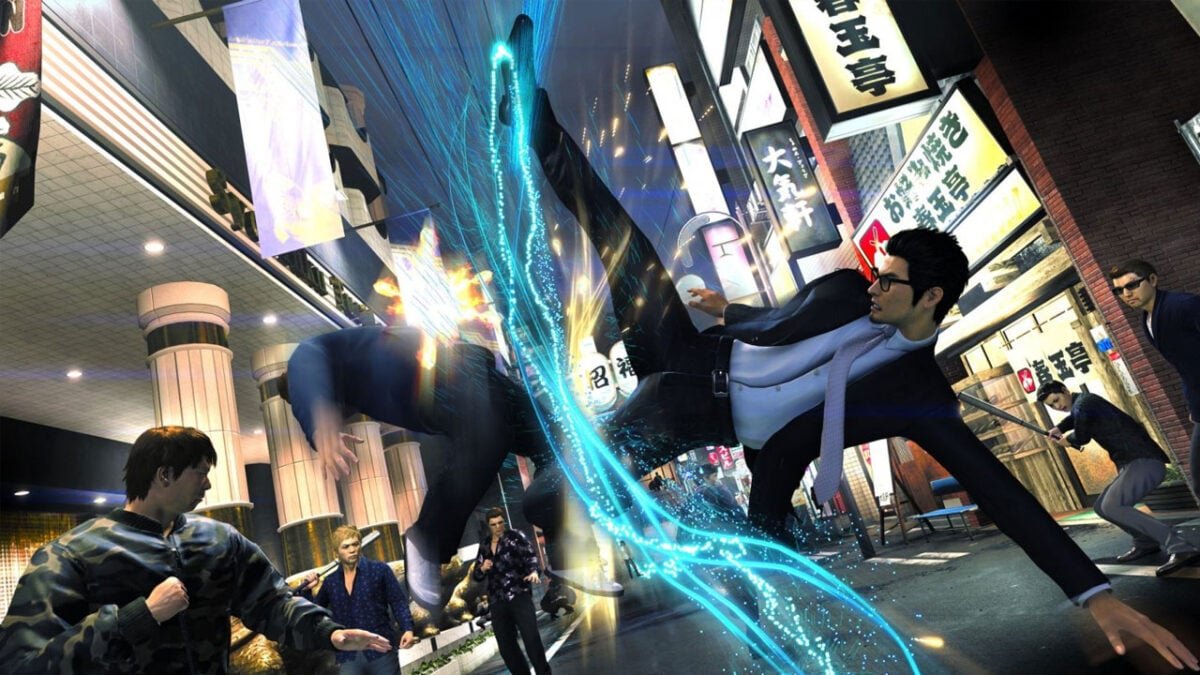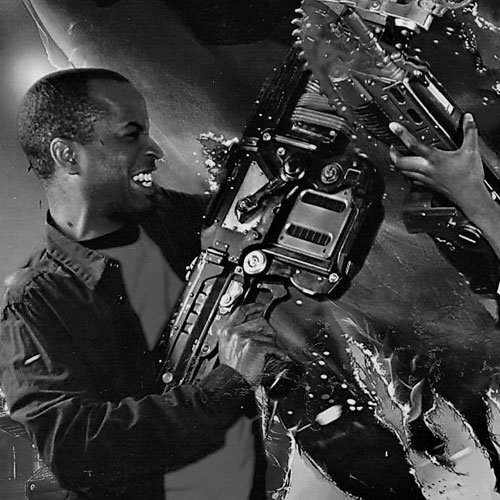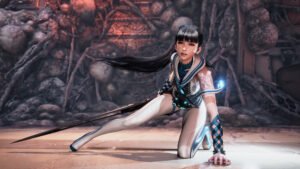The release of Like A Dragon Gaiden: The Man Who Erased His Name will surely provide relief for fans of Kazuma Kiryu, the series’ stoic protagonist. This title stands out from previous Yakuza/Like A Dragon games. Kiryu seemed to conclude his journey in Yakuza 6: The Song of Life, so his return is eagerly anticipated.
At the time, Ryu Ga Gotoku Studio’s spin-off series Judgment seemed ready to carry on the legacy and keep the spirit of third-person action-brawlers alive with Takayuki Yagami, a lawyer-turned-private eye, as the protagonist. On the other hand, Yakuza: Like a Dragon, another spin-off from the same studio, would take a new approach by incorporating RPG turn-based gameplay with a comedic twist, featuring Ichiban Kasuga, a former Yakuza, as the lead.
Well, as they say, sometimes best the laid plans often go awry, and while it’s tempting to speculate as to why there isn’t a third Judgment game or how well a tag team between Takuya and Ichiban might have carried the Like A Dragon franchise if Kiryu had stayed gone, it’s all pointless in the end because Kiryu is back to kick ass and erase names, starting with his own!

Like A Dragon Gaiden: The Man Who Erased His Name is a slick, action-filled side-story that takes place between Yakuza 6 and the events of both Yakuza: Like a Dragon and the upcoming game Like A Dragon: Infinite Wealth, and explains what the “Legendary Dragon of Dojima” was up to preceding his much-advertised appearance in the latter.
At the end of Yakuza 6, Kiryu made a deal with a secret spy agency named the Daidoji, supported by the government, to safeguard his foster children’s lives and maintain their residence, Morning Glory Orphanage. As part of a deal, Kiryu pretended to die (assisted by the Daidoji), gave up his name (now called “Joryu”), and promised not to reveal any details about the Daidoji’s corrupt politics.
“Like A Dragon Gaiden is a slick, action-filled side-story that takes place between Yakuza 6 and the events of both Yakuza: Like a Dragon and the upcoming game Like A Dragon: Infinite Wealth.”
Under constant observation, Kiryu lives like a monk and only has temporary freedom when working with other Daidoji agents in the field, which is always restricted. That’s until a mission concerning the Omi Family Alliance involves him…
As a Yakuza 0 enthusiast, I was thrilled to witness the reintroduction of various battle techniques in Kiryu’s arsenal, which was unfortunately absent in Yakuza 6, even though it was a defining element of both Judgment games. In Like A Dragon Gaiden, Kiryu masters two styles fittingly reflect his uncertain presence as an “indentured super-spy” and his notorious criminal history: Agent-Style and Yakuza-Style.
Agent-Style is a fast and agile MMA technique similar to Kiryu’s Rush-Style from Yakuza 0. It uses high-tech spy gadgets, including a wire called “Spider” hidden in Kiryu’s wristwatch. The wire is gravity-defying and can bind one or more enemies or objects. Kiryu can then “flick” them in a desired direction, hopefully hitting other foes or the ground.
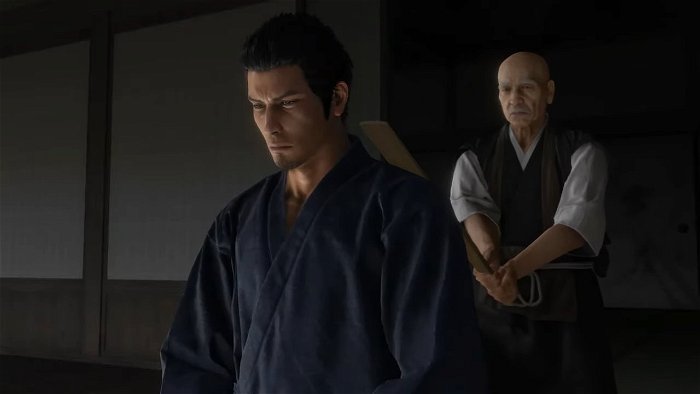
This allows Kiryu to follow up with a brutal combination. As the story develops, Kiryu will acquire more devices in his arsenal, including AI drones, cigars that explode, and shoes with rockets, among others. These devices can be enhanced to make Kiryu a more impressive and capable agent who can deflect enemy attacks effectively.
Yakuza-Style eschews the use of complex spy tools and instead relies on Kiryu’s powerful brawler techniques that he has acquired over the years. However, being under Daidoji’s influence for many months has left him rusty, and he needs to relearn many of his old moves. The reset of the skill tree is a familiar sequel device, but in Like A Dragon Gaiden, it serves to enhance the storyline. The game’s initial encounters concentrate on teaching players the basics of the Agent-Style before introducing Yakuza-Style, which can be immediately accessed by pressing down on the directional pad.
Beyond looking all-out incredible, some Yakuza-Style strikes and charge attacks can launch enemies into the air just long enough that players can switch back to the speedy Agent-Style to immediately extend their onslaught, and the same can be said switching from Agent-Style back to Yakuza-Style. Yakuza newcomers and vets alike will no doubt enjoy experimenting with these discoveries as their style move sets grow and evolve.
The Heat Gauge comes back, split into segments. This allows players to pull off special Heat moves with satisfying, punishing finishing moves. Moreover, a new Ultimate Counter mechanic lets you dodge a potent enemy’s Ultimate Attack with the right timing and strike back hard while they’re still vulnerable. It’s a good change that makes boss battles seem fairer and less daunting than in previous games, where such encounters would frequently appear like a low-cost game of enduring your adversary with recovery objects rather than defeating them in battle.
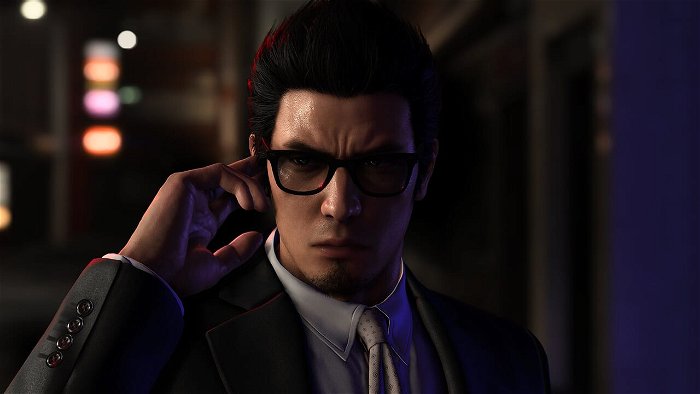
When it comes to moves, I was glad to see Like A Dragon Gaiden bringing back its disciplined skill tree structure. It resembles the column layout from Yakuza 6 but with added structure. Following experience points is also more straightforward compared to Yakuza 6’s more relaxed approach. I think Yakuza 6 may have given players too much power to choose which skills to unlock first. This was based on the excessive amount of experience points they could gather in what felt like too many categories.
In contrast, Like A Dragon Gaiden intentionally limits progress based on what Yakuza 0 wisely emphasised as the most important resource: money (or currency, to be precise). Similarly to Yakuza 0, everything in Like A Dragon Gaiden carries a hefty price tag, be it food, drinks, entertainment, buffs, restorative items, gadget upgrades, or new fighting moves.
“Yakuza newcomers and vets alike will no doubt enjoy experimenting with these discoveries as their style move sets grow and evolve.”
Therefore, players will need to adapt to earning and spending millions of yen to upgrade just one move or technology in Kiryu’s possession. On top of that, players will also have to accumulate a good amount of Akame points, which represent a secondary currency employed by an Osakan informant of the same name. Kiryu forms an alliance with this informant in the early stages of the game.
Akin to a kind of sales tax, almost all the skills that Kiryu can unlock also inexplicably demand an Akame points fee, which supposedly Akame funnels back into her network to provide Kiryu with valuable tools, weapons and other curiosities (e.g. cosmetic items) via her shop, at the cost of yet more Akame points, of course.
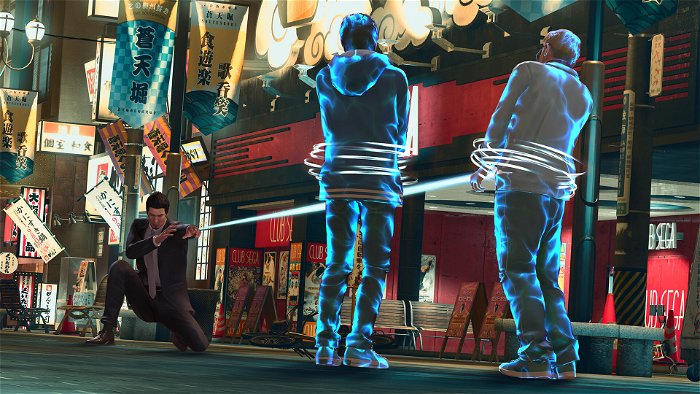
The deal gets even better (or worse, depending on one’s perspective); investing additional, hard-earned yen in the shop will improve the selection of weapons sold, offer increased discounts, and unlock side jobs around town that Kiryu can complete to increase the popularity of the Akame network and earn additional Akame points. Yup, it definitely seems like a shady operation that primarily benefits Akame when viewed from the outside, even though Akame is supposed to be your closest ally.
The important thing, however, is that between main missions, surviving random encounters in the street, finding hidden items, completing tasks for the Akame network and…well, doing just about anything successfully in the game will reward players with plenty of Akame points, cash (when appropriate) and items that can be sold off at Ebisu Pawn Shop for even more cash, so there’s no shortage of ways to earn the millions of yen needed for skill and tech upgrades.
That being said, since each upgrade is expensive, players will need to be selective about which skills they want to fuel their currencies into first, as they won’t be able to afford them all at once. So in a roundabout way, I guess I’m saying that when a Yakuza game makes upgrading skills expensive, it’s somehow way more fun? Yeah, I guess I am.
While we’re on the subject of fun, in typical Like A Dragon fashion, there’s absolutely no shortage of activities for players to unlock and participate in beyond the main mission, where they can farm cash and Akame points. In addition to the previously mentioned districts in Yokohama and Osaka, a third location, an adult amusement resort built on top of a massive container ship dubbed “The Castle” serves as a hub for many of the game’s more questionable diversions, such as high-end hostess clubs, underground pit-fighting, various types of gambling, and so on.
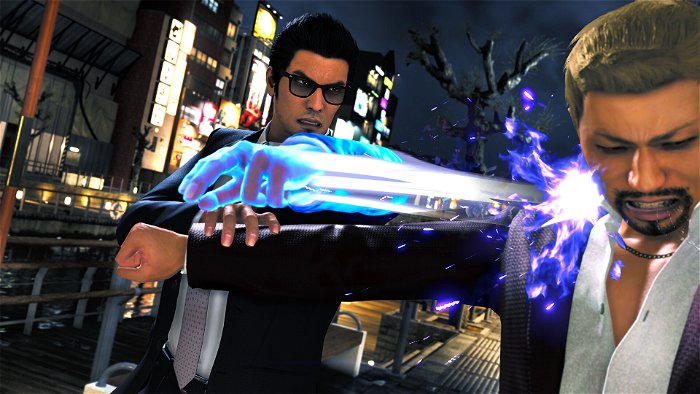
By the by, the Hostess Clubs located in The Castle as well as on the mainland have perhaps undergone the most dramatic change worth noting from previous titles, in that they feature “immersive,” high-quality, live-action FMV sequences starring real-life actresses. The novelty of this mode is rather surreal, but the acting is also extremely awkward, and the overall experience feels brief and shallow compared to the deeper “dating simulator” modes of the older games.
Even if you ignore the seedier stuff, however, there are hidden collectibles to be found in almost every nook and cranny of the game (e.g. Coin Locker Keys, special items, and playable Sega Master System cartridges), Pocket Circuit races to compete in, and more traditional diversions like Shogi and Sega Arcades coin-ops to keep oneself busy.
“In terms of its bonkers plot or its importance to the larger franchise timeline as a whole, it might feel more like a DLC for Like A Dragon: Infinite Wealth as opposed to a full-fledged game.”
Like A Dragon Gaiden effectively runs on the same graphics engine that has powered almost every modern Yakuza/Like A Dragon title since Yakuza 6 back in 2016, but witnessing this game running on the Xbox Series X in 4K would have you thinking otherwise; I’ve never seen an RGG Studio game look this good before.
Perhaps more importantly, though, in my many hours of play over several evenings, not once did I even see a noticeable hitch or buckle in the game’s rock-solid 60fps framerate, a completely different experience from my review of the Yakuza 6 Xbox remaster, which still suffers from framerate issues despite a later 60-frames-per-second FPS Boost patch courtesy of Microsoft.
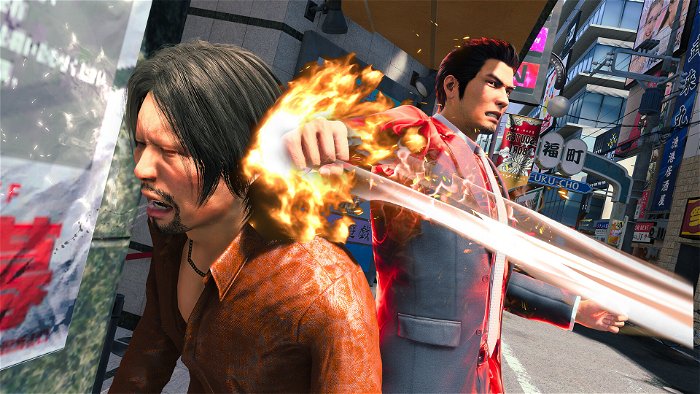
In case you’ve been wondering, I saved the best praise for last; the impeccably precise yet highly enjoyable controls that are a staple of the Yakuza/Like A Dragon action games have been retained, and this time around, there are no notable performance issues or input lag on current-gen consoles to hold them back, even with an abundance of alpha effects and enemies on screen.
The window for executing certain Heat Mode-related attacks is still a bit tricky, but this has more to do with the player recognizing visual cues in order to get their timing down right rather than any sluggishness on the part of the game. Quite frankly, fighting in Like a Dragon Gaiden has never felt better.
Okay, so now the bad news. The biggest, unexpected letdown for me with Like a Dragon Gaiden is its story and its cast of supporting characters. Don’t get me wrong, I never get tired of watching Kiryu chew up the scenery while facing down one menacing foe after another, and this game has no shortage of Yakuza goons, underbosses, family captains and patriarchs challenging enough to make each confrontation worth fighting through to the bitter end.
But I’d by lying if I refused to admit that Kiryu’s adventures are starting to feel a bit long in the tooth. As always, Kiryu fights to protect the friends and family that he holds most dear, but thanks in no small part to “been-there-done-that-syndrome,” the stakes no longer feel as high.
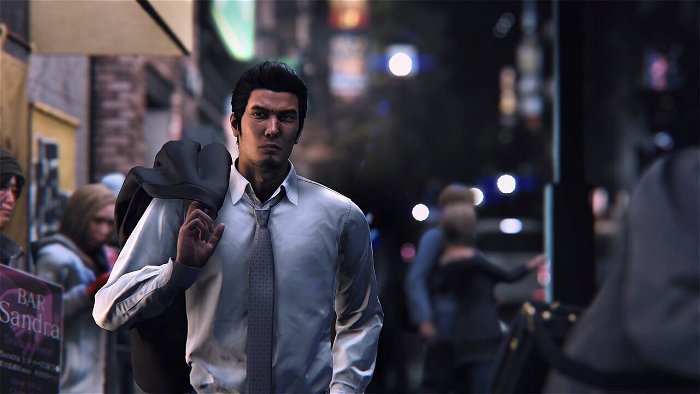
Then there’s the plot, which doesn’t make a lick of sense. For starters, Kiryu is extremely bad at the “secret” part of being a secret agent. The game’s whole premise hangs on the notion that Kazuma Kiryu is legally dead and that his new identity is “Joryu,” but Kiryu makes next to no effort to hide his face when on a mission, resulting in just about every Daidoji and Omi thug calling him out for the opportunity to fight the “Dragon of Dojima.”
Yet even when this happens, it doesn’t stop Kiryu from continuing to play dumb and insist that he’s not the legendary ex-Yakuza. Finally, the motivations that drive the Omi Alliance to draw Kiryu out of hiding, not to mention their grand plan involving him, are beyond ridiculous. I love my big dumb Yakuza games, and I can suspend my belief in them quite a bit, but come on now!
These gripes aside, I still found Like A Dragon Gaiden: The Man Who Erased His Name to be a must-play experience both for fans of the franchise as well as action lovers who might be curious as to what all the fuss is about. In terms of its bonkers plot or its importance to the larger franchise timeline as a whole, it might feel more like a DLC for Like A Dragon: Infinite Wealth as opposed to a full-fledged game (RGG Studio has recently confirmed that this was indeed the original plan).
But in regards to visuals, gameplay and overall execution, Like A Dragon Gaiden is exemplary of how every RGG Studio game should look, sound, play and feel on modern consoles. And with the game launching Day One into Xbox Game Pass for Xbox, Cloud and PC, there is absolutely no reason for anyone to skip on this game because of the sticker price.
